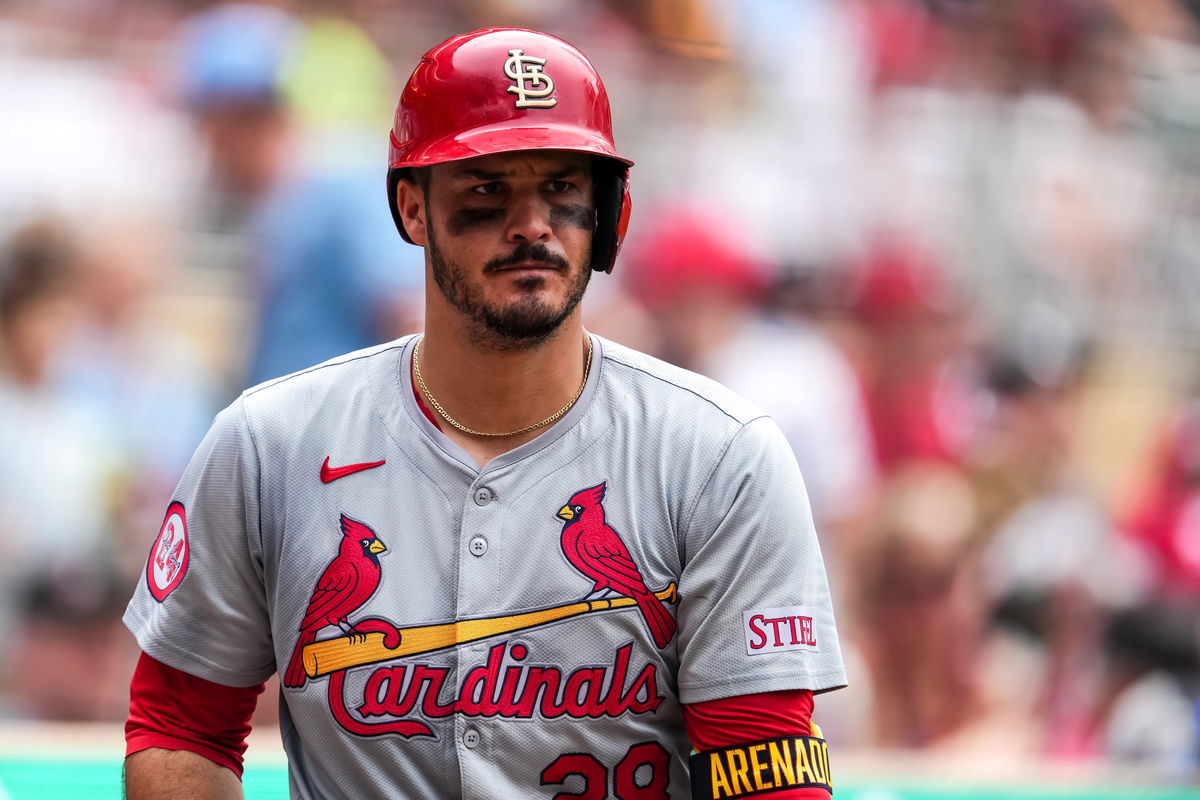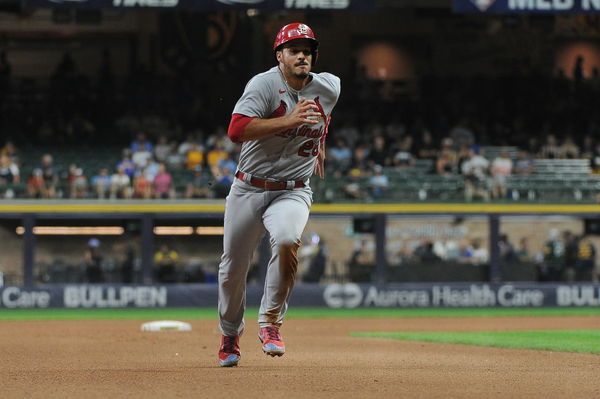

The New York Yankees reportedly explored an interesting yet unconventional path to address their lineup needs this offseason. They targeted St. Louis Cardinals third baseman Nolan Arenado in a proposed “bad contract for bad contract” trade. The Yankees offered veteran pitcher Marcus Stroman, whose performance and hefty contract had become a burden, in exchange for Arenado, who carries his own challenging financial commitment and has shown signs of decline. However, the Cardinals swiftly declined, effectively shutting down the deal months before it gained traction in the rumor mill.
Watch What’s Trending Now!
The proposal showcased the strategies of Yankees owner Hal Steinbrenner and GM Brian Cashman as they tried to revamp their team without adding long-term commitments. Stroman, previously seen as a dependable pitcher, faced challenges in 2024 and received significant backlash from Yankees supporters after securing a big contract. On the other hand, Arenado’s performance with the bat declined since his 2022 season, making it harder for the Cardinals to rebuild due to his high salary.
ADVERTISEMENT
A swap that never materialized
In a YouTube video posted by CBS Sports, Jim Bowden was asked about the rumors surrounding Nolan Arenado and the Yankees. Bowden said, “The Yankees were never really in on Arenado outside of the fact that they offered Marcus Stroman to the Cardinals. In other words, a bad contract for a bad contract. And the Cardinals said We have no interest in Stroman. So that situation came and went. But the only truth to that rumor was that, hey, if you take the bad contract of Stroman, we’ll take the bad contract of Arenado. The Cardinals said thanks, but no thanks. And that happened a couple of months ago.”

USA Today via Reuters
St. Louis Cardinals third baseman Nolan Arenado Credit: Michael McLoone-USA TODAY Sports
Despite the Yankees’ interest, several factors made this trade unfeasible. Arenado’s full no-trade clause gave him significant control over his destination, and insiders suggest that the Cardinals never considered Stroman as a viable piece in their plans. The organization, already navigating a transitional phase, likely saw little value in swapping Arenado’s contract for a similar financial burden without receiving prospects or financial relief in return. The Cardinals are instead focused on fostering young talent like Brendan Donovan and Nolan Gorman, who could step into Arenado’s role if he were to be moved.
ADVERTISEMENT
This failed negotiation sheds light on the Yankees’ struggles to address roster deficiencies creatively and within budget constraints. While Arenado would have filled a need at third base, the Yankees were unwilling—or unable—to offer anything more enticing than Stroman. The Cardinals, for their part, seem committed to avoiding unnecessary risks as they rebuild.
Top Stories
Blue Jays’ Hidden Motive Behind $37M Ex-Mets Heist Surfaces as Trey Yesavage Receives Major Boost

Blue Jays Retaliate Back on Japanese Babe Ruth Plan After Yankees & Brian Cashman Try to Sabotage Offseason Plan

Blue Jays to Show Exit Door to 3 Playoff Stars as Ross Atkins Plans Major Changes: MLB Winter Meeting Rumors

Mets To Show Exit Door to 22-Year-Old Pitcher After Surprise Francisco Lindor–Brandon Nimmo Revelation

Craig Breslow Told to Save Face With One Final Act Before Anticipated Red Sox Firing

Ultimately, the rumor surrounding Arenado to the Yankees had more smoke than fire, and an MLB insider quickly dismissed it as a non-starter. While Steinbrenner and Cashman’s approach was unconventional, the Cardinals’ swift rejection revealed the limitations of such gambits in the modern baseball landscape. This brief but telling episode underscores the challenges both teams face in navigating high-stakes roster construction.
ADVERTISEMENT
Nolan Arenado’s no-trade clause, a barrier to any deal
Nolan Arenado holds all the cards with his no-trade clause, which puts him in charge of his destiny when it comes to trades. This provision was included in the high-value deal Arenado inked with the Colorado Rockies and has stuck with him since joining the Cardinals—it grants him the authority to block any trade offers that come his way. While this gives him the freedom to pick destinations that suit his preferences best, it also ties the hands of the Cardinals when it comes to moving Arenado without his say.
So, it becomes more challenging to transfer his contract when considering teams that Arenado might not prefer or those that don’t seem likely to make it to the playoffs. Even if Arenado agrees to a trade, his preferences could limit the pool of interested teams willing to meet St. Louis’ demands for compensation. Additionally, his declining performance and high salary make finding a suitable partner challenging; this clause not only protects Arenado’s interests but also ensures that any trade involving him must meet a narrow set of conditions, further stalling potential deals.
ADVERTISEMENT
For both the Yankees and Cardinals, the situation underscores the complexities of modern roster management. Do you think they can navigate these financial constraints for smoother future planning? Let us know in the comments.
ADVERTISEMENT
ADVERTISEMENT
ADVERTISEMENT

